The Centered Brain
Biofeedback & NeurofeedbackChange the way your body and brain respond to the world
The Centered Brain biofeedback and neurofeedback treatment center is one of the few practices in the tri-state area to offer specialized biofeedback treatment based on each client’s individual needs. The Centered Brain offers a full suite of biofeedback technologies including:
- Functional EEG Assessments (qEEG) with normed data base comparison
- Heart Rate Variability Training (HRV)
- EEG based neurofeedback training using Nexus
- Ultra-low frequency neurofeedback training using Cygnet
- Bioresonance Therapy (BRT) using the Lenyosys Cellcom System
- Passive Infrared Hemoencephalography (pirHEG)
- Muscle Tension (EMG) training
Our team of fully certified clinicians create a personalized plan based on YOUR brain, YOUR background, and YOUR treatment goals. We integrate therapy with data-driven biofeedback services in order to maximize the impact of training and optimize results for our clients.

What is Biofeedback?
Biofeedback offers information (feedback) about how your body (bio) is functioning. Biofeedback helps individuals learn how to change the way their minds and bodies respond to their environment in order to improve attention, coping, regulation and overall health.
Similar to how a scale gives us feedback on how well our diet is working, biofeedback gives us information about how well our minds and bodies are functioning. During biofeedback sessions, both the Central and Peripheral Nervous Systems are measured and trained toward optimal functioning using non-invasive sensors that pick up changes in the electrical activity of the heart, brain, or muscles, as well as changes in blood flow. Sensors monitor physiological changes in our brainwaves, breathing, heart rate, muscle tension, and skin temperature and then provide information or “feedback” via computer programs. This feedback teaches individuals to regulate how they respond to the world.
Neurofeedback is a form of biofeedback that teaches clients to regulate the electrical activity of the brain by providing feedback specific to brainwave activity. Neurofeedback training is the primary biofeedback treatment focus of The Centered Brain.
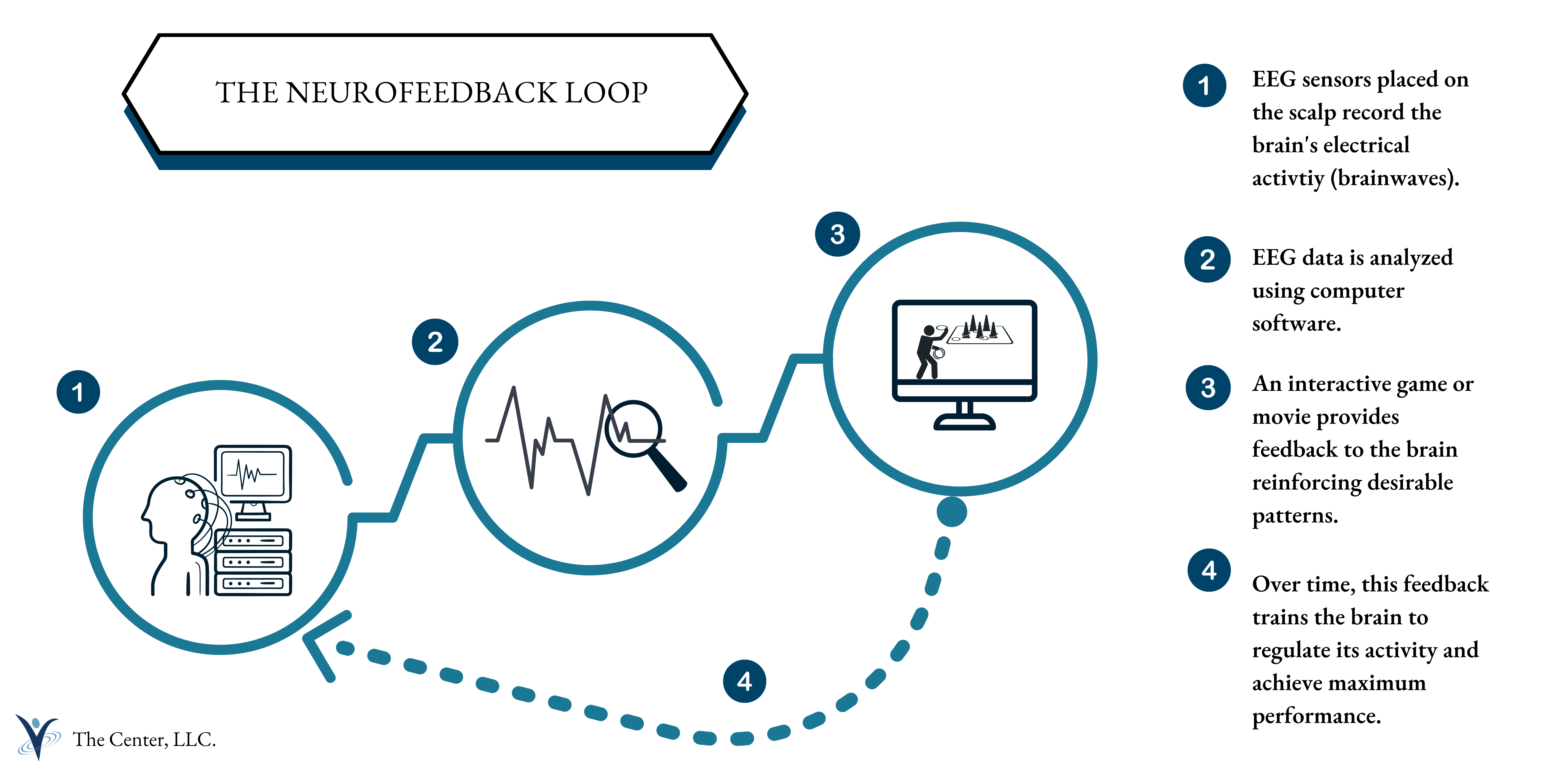

The Typical Course of Treatment
Intake Appointment
A psychologist works with you to understand your concerns as well as the changes you wish to achieve. Completing the intake questions and symptoms prior to the appointment helps them gain a deeper perspective.
Functional EEG Assessment
A psychologist assesses your brain functioning at 19 sites of your brain and compare that functioning to a database of peers. This assessment provides detailed information about why you may be experiencing the symptoms you have, and how to effectively apply neurofeedback to your benefit.
Heart Rate Variability Training
A psychologist assesses how your sympathetic and parasympathetic nervous systems are working together. In this step of treatment, you will begin to learn how to to breathe in rhythm with your heart beat in order to calm and regulate your physiology and mood.
Neurofeedback Training
A psychologist and neurofeedback coach work with you to create a tailored protocol for your ongoing treatment. As a team we work to regulate your brainwaves through neurofeedback training sessions.
Brainwave Basics
Measuring Electrical Activity
During biofeedback sessions, both the Central and Peripheral Nervous Systems are measured and trained toward optimal functioning using non-invasive sensors that pick up changes in the electrical activity of the heart, brain, or muscles, as well as changes in blood flow.
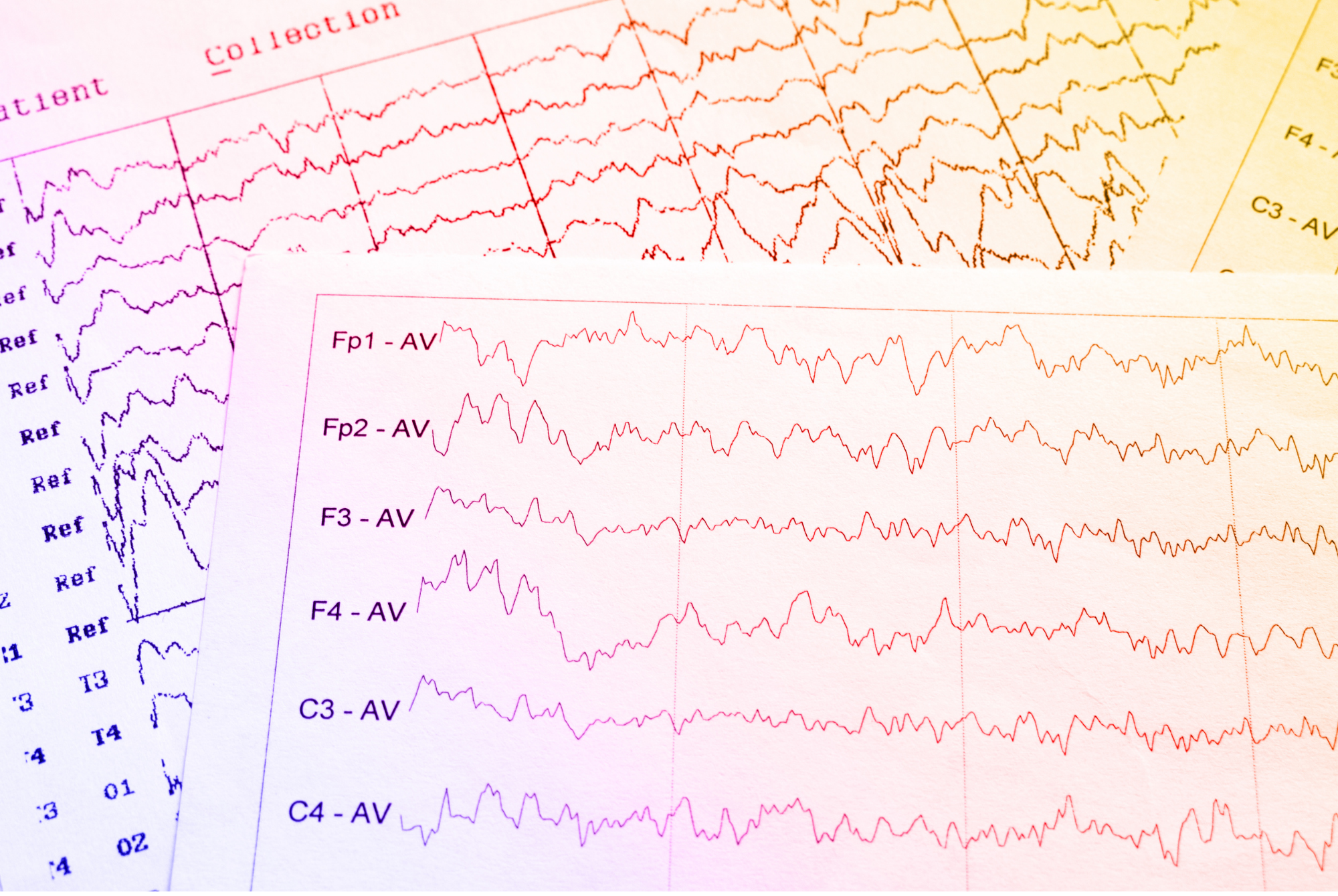
Brainwave Optimization
At the root of all our thoughts, emotions and behaviors is the communication between neurons within our brains. Brainwaves are produced by synchronized electrical pulses from masses of neurons communicating with each other.
Brainwaves are detected using sensors placed on the scalp. They are divided into bandwidths to describe their functions, but are best thought of as a continuous spectrum of consciousness; from slow, loud and functional – to fast, subtle, and complex.
Our brainwaves change according to what we’re doing and feeling. When slower brainwaves are dominant, we can feel tired, slow, sluggish, or dreamy. The higher frequencies are dominant when we feel wired, anxious or hyper-alert.
While all brainwaves play a vital roles, their ratios are important. Neurofeedback helps brainwaves shift into more balanced ratios in order to optimize health and effective functioning.
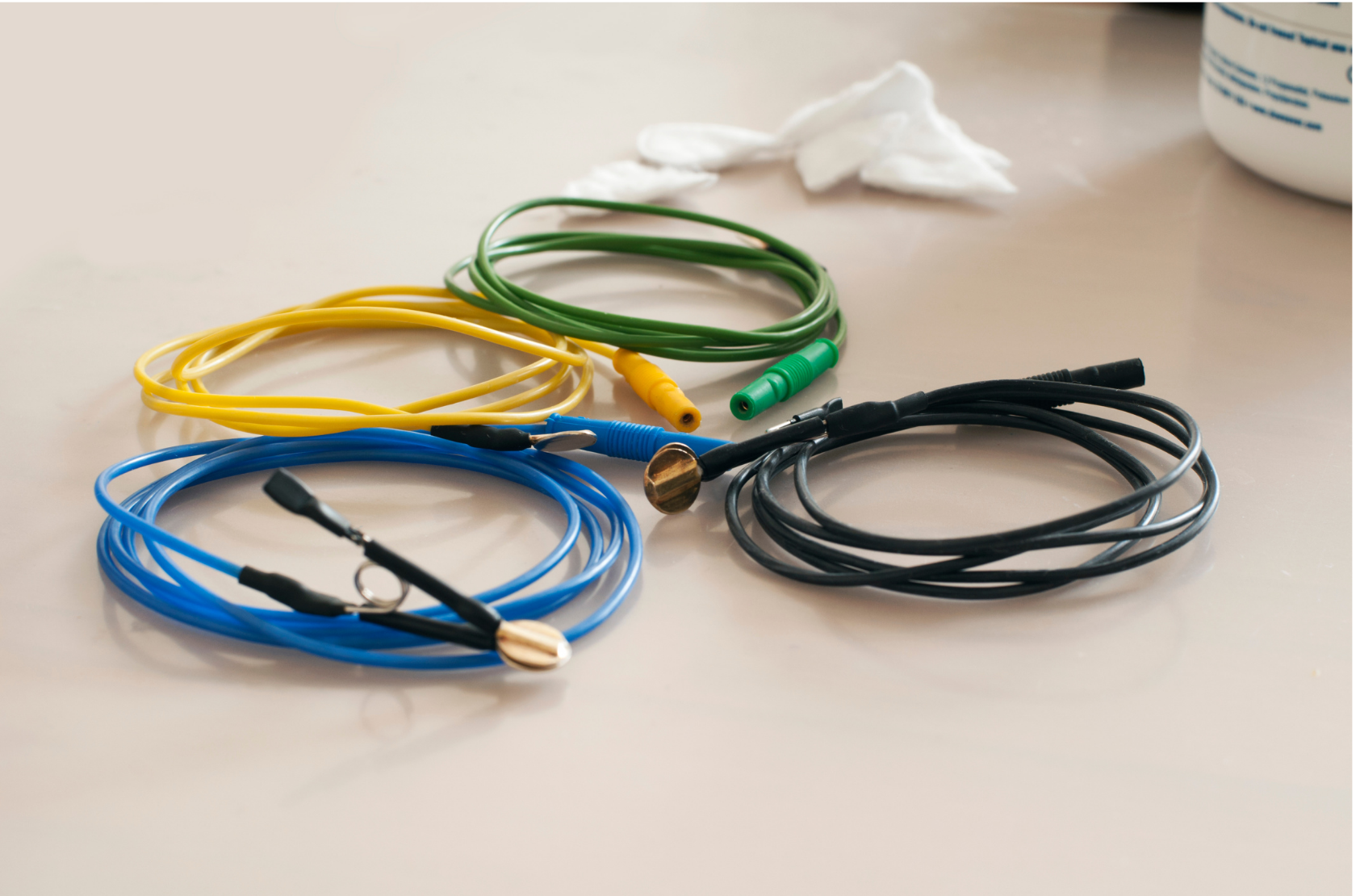
EEG Sensors
We attach EEG sensors to your scalp to read and track your delta, theta, alpha, beta, and high beta brainwaves.
While all brainwaves are necessary and beneficial, much like hormones, it is important that the brain has the right ratio of brainwaves at each site of the brain. For example, too much high beta can lead to anxiety or too much theta can cause lack of focus.
We use EEG technology to read your brainwaves while you interface with a game on a computer screen. When your brain generates the target waves, the game will reward you. When your brain moves off target, the computer will indicate this as well. Using this feedback, your brain will start to shift its electrical patterns.
Typically, these changes are calming to the brain, and are thus self-rewarding. Much like wearing braces results in permanently straightened teeth, repeated neurofeedback training often leads to long-standing changes in your brainwave patterns and long-standing improvements in your life.
Our Services
The Centered Brain uses the following technologies:
- Nexus EEG training
- Cygnet Ultra-low frequency training
- Heart Rate Variability (HRV) Breathing training
- Hemoencephlography (HEG) Training for Migraines
- Bioresonance Training (BRT) for pain reduction
- EMG training for muscle tension
Qualitative EEG (qEEG) or Brain Mapping
In order to offer the more robust symptom reduction, we use data from a Qualitative EEG (qEEG) which is also sometimes referred to as a Functional EEG. This test uses EEG sensors placed on your scalp to collect data from 19 sites of your brain with your eyes open and your eyes closed. We compare each site to each other in order to gain insight into how your brain is functioning. We also compare your brainwaves to a data base of same-aged individuals who have not been given a diagnosis (normative sample). We look to see where your brain has electrical activity that is more than a standard deviation and a half outside of the norm. This is where we look at training.
Our brainwaves tell a story and give us clues as to where dysregulation is happening as well as what an accurate diagnosis might be. The brain of a person struggling with anxiety looks different than the brain of a person who has ADD. Trauma also leaves a distinct impact on the brain, as does concussion, chronic pain and other diagnoses. By starting training with solid data, we are better able to personalize your treatment in order to help you feel better.
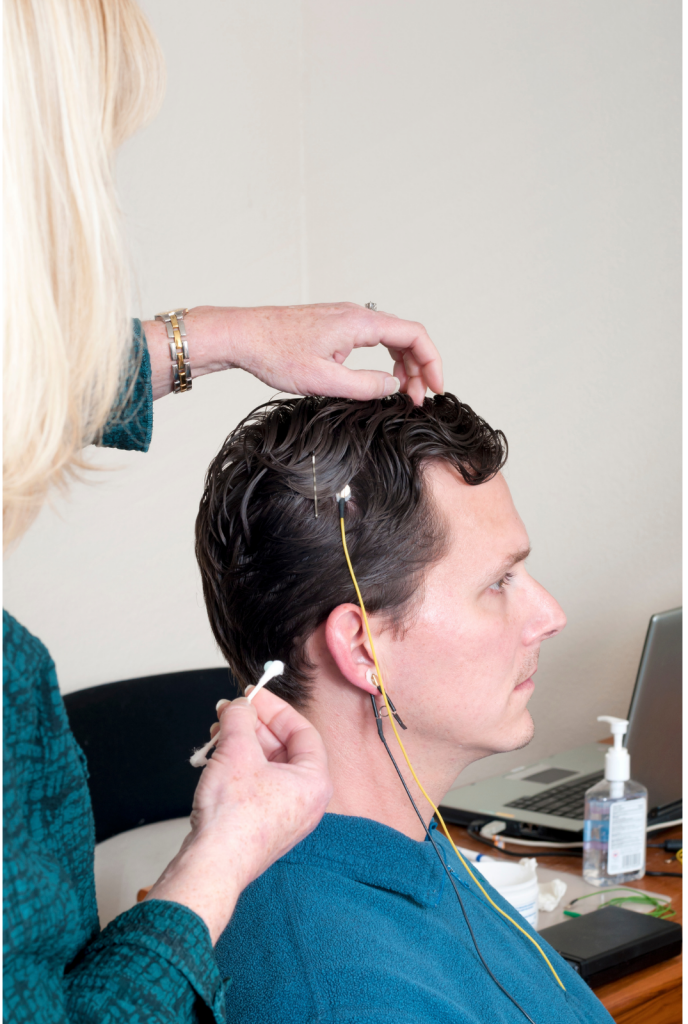
Frequently Asked Questions
What Does Neurofeedback Effectively Treat?
- Attention Deficit Disorder (ADD/ADHD)
- Executive Functioning Issues
- Anxiety – Panic Attacks
- Mood Issues
- Migraines – Tension Headaches
- Chronic Pain
- High Blood Pressure
- Emotional Dysregulation
- Trauma and Hypervigilance
- Anger Outbursts
- Seizure Disorders
- Impulse Control Issues
- Phobias
- Tics
- Autism Spectrum Behavioral Issues
- Obsessive Compulsive Disorder (OCD)
- Perseverating Thoughts
How Will I Know If It's Working?
The Centered Brain is a data-driven practice. We assess outcome using pre-selected data points which can be objectively measured. For example, a client struggling with focus may be working to reduce theta waves while a client struggling with anxiety may be working to increase alpha while decreasing hi-beta. Every session is recorded and the data is analyzed in ways that give us consistent measurements per session. This allows use to track progress over time in an objective and measurable way. We also track clients’ subjective experience of change. During the intake process, we create a series of individualized questions that we ask at every session. For the anxious client above, we might be tracking level of anxiety using a 1-10 scale, number of panic attacks, or ease of being in a crowd. For a child being treated for ADD, we might track level of focus, number of missed school assignments, or number of times that the child needs to be reminded of a task before completing it.
We can ensure change by tracking measurable shifts in biology and the client’s subjective experience. Throughout the course of treatment, we track, review, and reassess each client’s progress. This leads slight tweaks and shifts in the treatment plan in order to best support each client’s progress.
What Does the Research Say?
There is a growing body of evidence indicating the power of biofeedback and neurofeedback as a powerful, non-invasive, long-term solution for several otherwise chronic conditions.
Some resources that explore neurofeedback and biofeedback:
Books:
The Body Keeps The Score by Dr. Bessel Van Der Kolk (NYT Best Seller)
The Symphony Of The Brain: The Evolution of the New Brain Wave Biofeedback by Jim Robins
Neurofeedback in the Treatment of Developmental Trauma by Sebern Fisher
A full collection of research specific to various diagnosis: https://www.eeginfo.com/research/
Please see this page for more information.
At what age is my child ready for Neurofeedback?
Why Choose Biofeedback / Neurofeedback?
Biofeedback is a non-invasive learning technique that puts you more in control of your body and your emotional reactions. Training sessions will teach your body to regulate itself and to maintain that balance. Because the body craves regulation and efficiency, these changes are self-rewarding. Your physical body and mind feel better when your brain makes use of the learning, thus the changes tend to become permanent. It is not unusual for a client to experience significant reduction in symptoms in 20 sessions with long-term changes occurring in 40 to 50 sessions.
When Will I See Results?
It is not unusual for a client to experience significant reduction in symptoms in 20 sessions with long-term changes occurring in 40 to 50 sessions.
Are there any contraindications to Neurofeedback?
Neurofeedback does not treat every disorder. While it is ideal for trauma, ADD, OCD, anxiety, Tourette’s, Migraines and chronic pain, it is not our recommended treatment of choice for thought disorders, depression as a front-line treatment, when there is an active eating disorder, or when a client is struggling with an active addiction.
For most people, symptoms and concerns do not fit neatly into diagnostic “buckets.” This is why we always begin with a thorough intake that allows for time to understand you, your experiences, and your goals. After the intake we can let you know if you are a good fit for neurofeedback. There will also be time to ask any questions you may have so that you can decide is neurofeedback is a good fit for you.
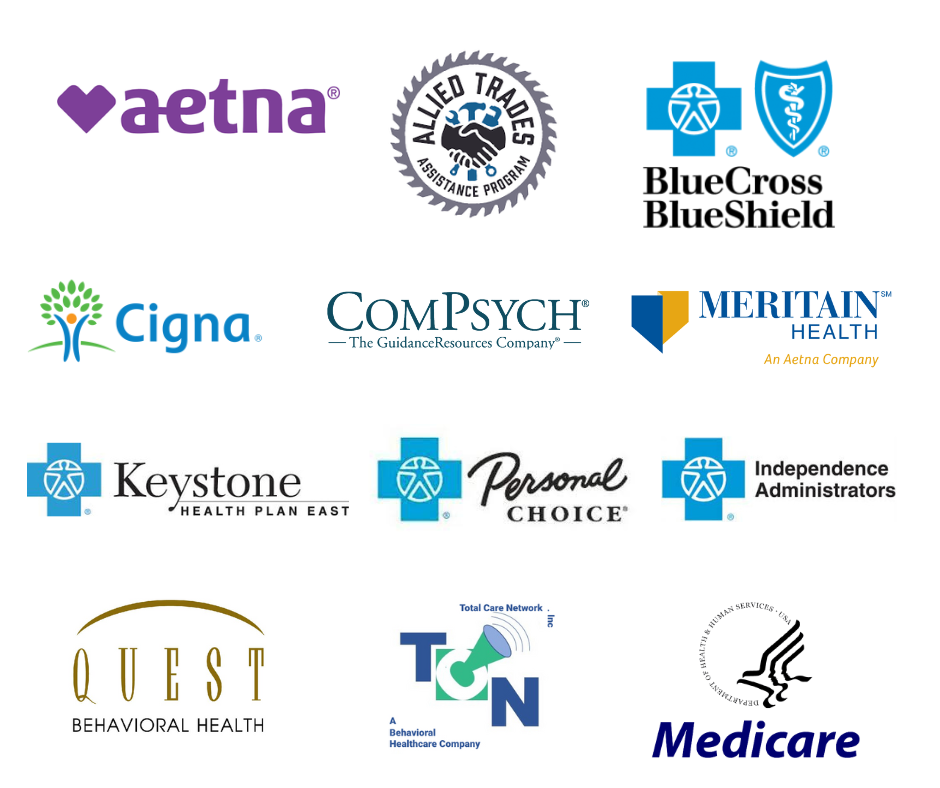
We are in network with many major insurance companies. Network status is subject to change. Nutrition counseling has additional networks.
Please call us to determine network status for behavioral health and nutritional counseling.
We will work with out of network insurance.
Meet our Team
The Clinical Team

Kristin Van Doren, PsyD, BCN, BCB (she/her)
Director, The Centered Brain
As the Clinical Director of The Center’s neurofeedback services, I have seen first hand the ability of mind and body to adapt, heal, and grow when provided the right information and support. I am experienced in the use of cognitive behavioral therapy, play therapy, family therapy, and existential treatment techniques, which I use in conjunction with biofeedback and neurofeedback to help children and adults manage trauma, anxiety, depression, chronic illness, and academic difficulties.
Using data-driven and research-supported approaches, The Center’s neurofeedback team will find the best treatment fit for you or your child. Together we will help you understand your body, mind, emotions, and behaviors in ways that allow you to make the most of your own abilities.

Kristine Boward, PsyD, BCN (she/her)
Director, The Center, LLC
In 2018, my work shifted from individual clinical practice toward The Centered Brain, our biofeedback and neurofeedback treatment center. In both practices I use a variety of therapeutic strategies depending on the individual and often use analogy and imagery to gain a more tangible grasp of issues that may feel murky or nebulous.
The Centered Brain uses a team approach as our clinical staff incorporates psychotherapeutic and biofeedback techniques to assist clients in developing and maintaining minds and bodies that respond to the world around them with balanced thoughtfulness and flexibility.
The Centered Brain uses a team approach led by its clinical director, Dr. Kristin Van Doren integrating psychological services from our skilled clinical team and neurofeedback coaching from our certified technicians.
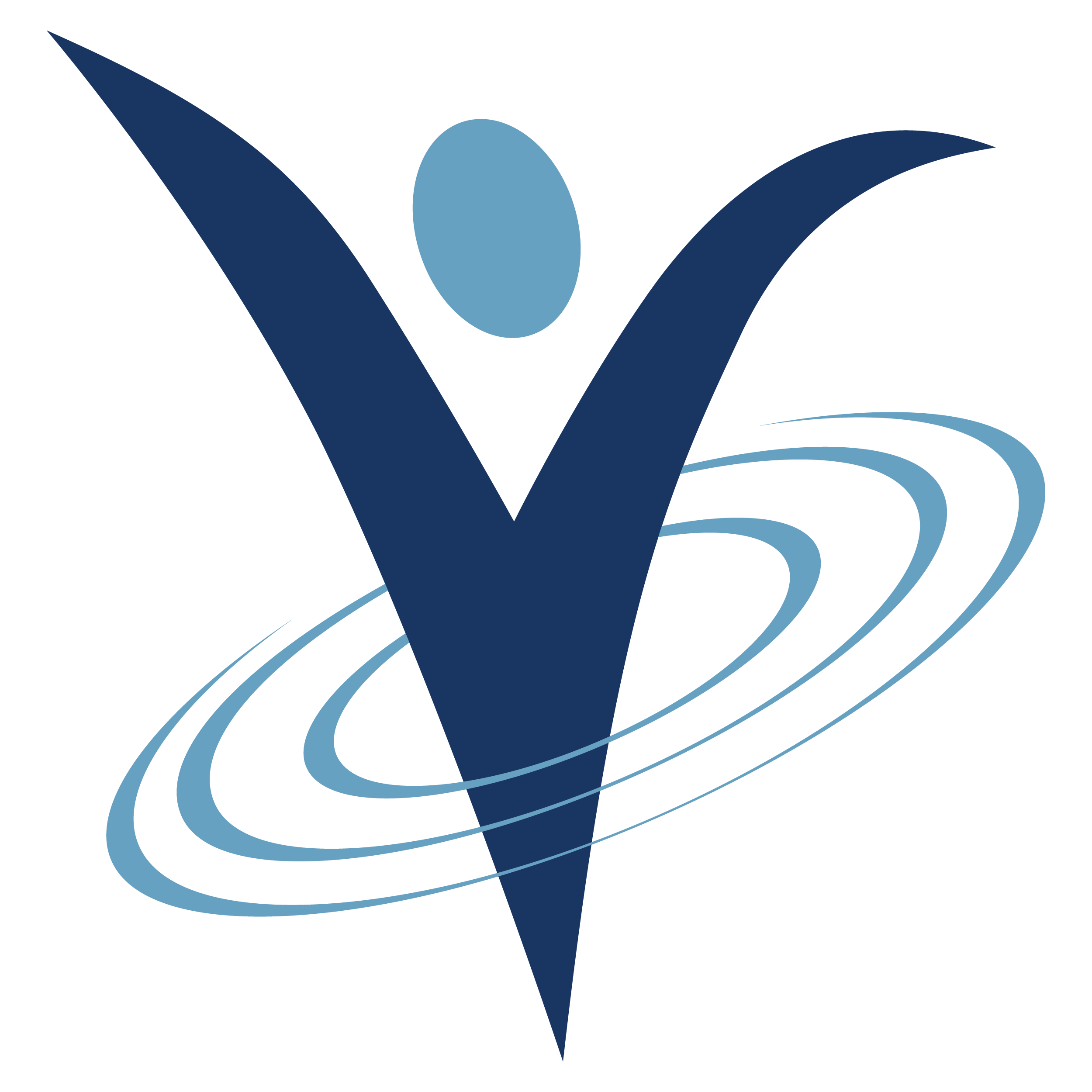

Aubrey Flanigan, PsyD, BCB (she/her)
Staff Psychologist
My treatment approach integrates bio- and neurofeedback with therapeutic techniques to assist clients in regulating their physiology and achieving their treatment goals.
Working with kids, adults, and families who are navigating trauma, anxiety, chronic illness, depression, ADHD, and academic challenges, I empower clients to understand and regulate the physiological and neurological underpinnings of their symptoms gaining a better understanding of themselves. I integrate this knowledge of the body with a variety of therapeutic approaches, including: Cognitive Behavioral Therapy, Emotion-Focused Therapy, Acceptance and Commitment Therapy, Attachment-Based Therapy, and Family Systems Therapy. This approach helps clients understand the “why?” behind their symptoms and better explore the “what’s next?” in achieving their treatment goals.
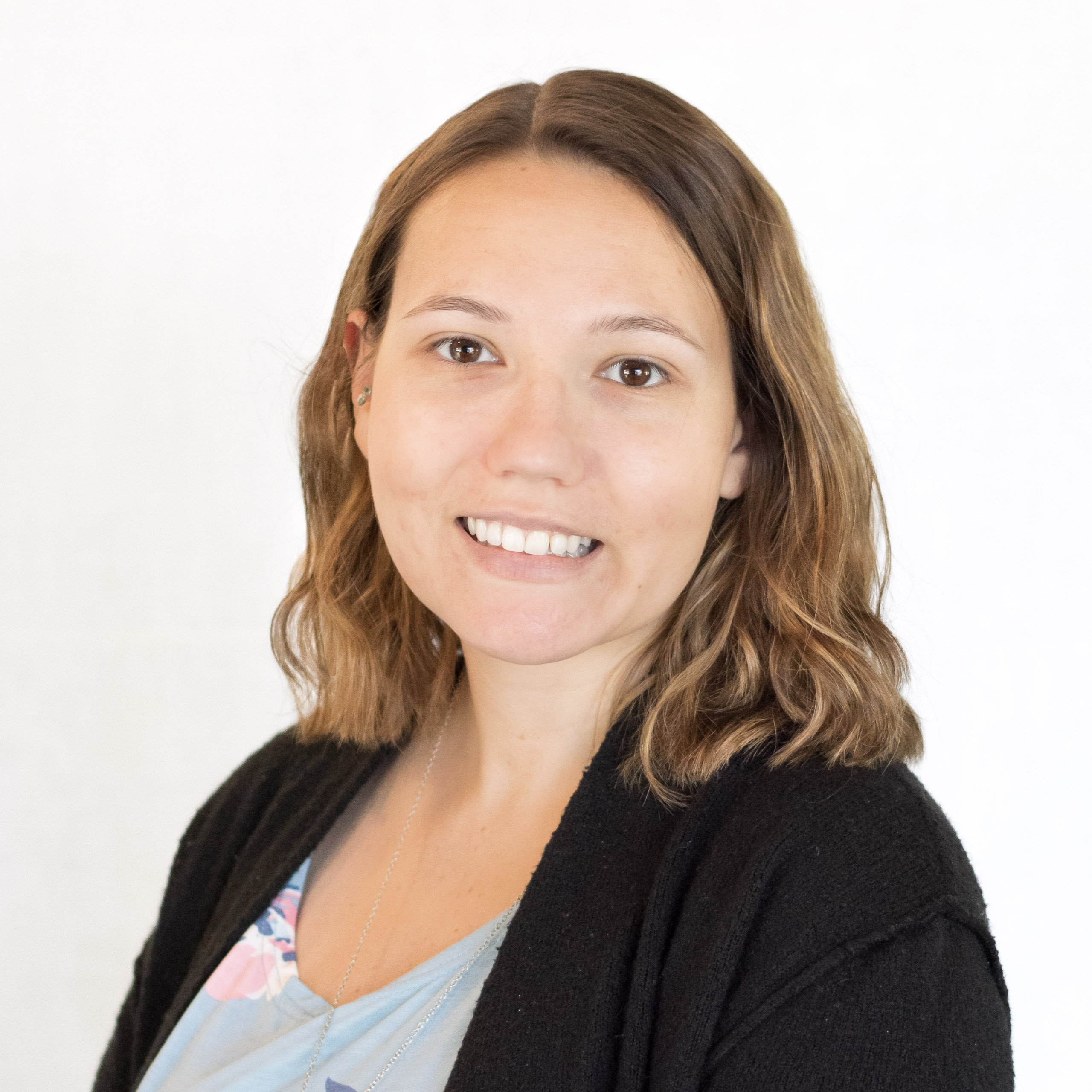
Allyson Dennin, PsyD, BCB (she/her)
Staff Psychologist
Individual/Family/Children/Teens
Telehealth & In-person
As humans we experience a wide array of emotions that can interfere with relationships, work/school, and our daily life. I employ a holistic approach to help clients grasp the relationship between our emotions, our body’s response system, and our interactions with people and the world. Themes like compassion, empathy, and empowerment are woven through all our work together.
My expertise covers various developmental stages, from emotional regulation in children to life transitions in adolescents and young adults. I also address issues like parenting, family conflicts, and communication. Additionally, I work with trauma, ADHD, and mood disorders, using therapies like CBT, ACT, EFT, and Family Systems. I am certified as a School Psychologist and certified in Biofeedback.
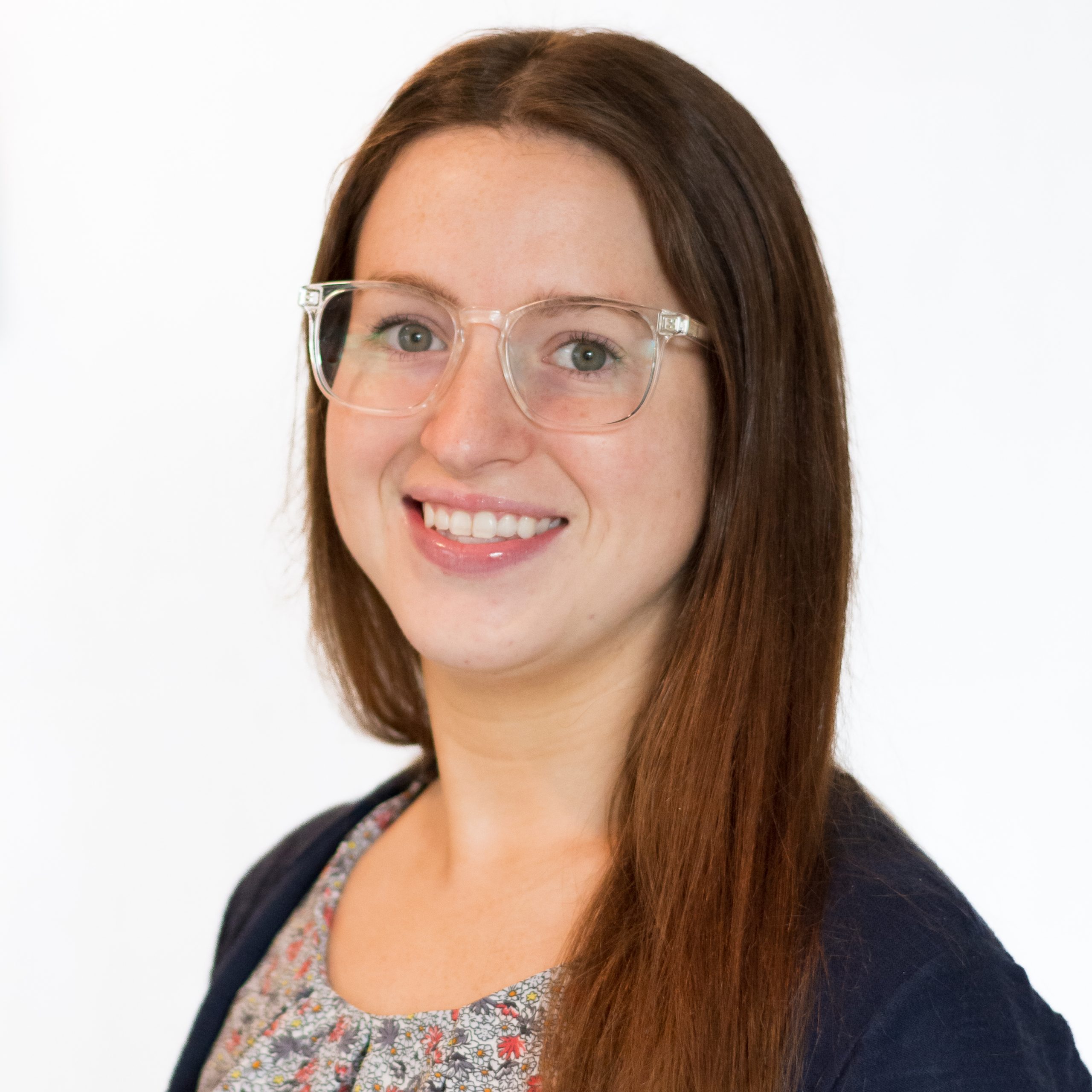
Brielle Turano, MA, BCN (she/her)
Pre-Doctoral ClinicianTelehealth & In-person
As a pre-doctoral clinician with a background in Neuroscience, I’ve been specializing in biofeedback and neurofeedback modalities since completing my undergrad in 2018. Joining this practice in 2019, I furthered my expertise by earning a Master’s Degree in counseling and becoming BCIA certified in Neurofeedback in 2021.
I have successfully completed my Master’s and embarked on my PsyD journey at West Chester University. I’m truly inspired by the supportive environment here, where clients genuinely feel seen and heard. My passion lies in making a meaningful impact in people’s lives through the transformative power of neurofeedback.
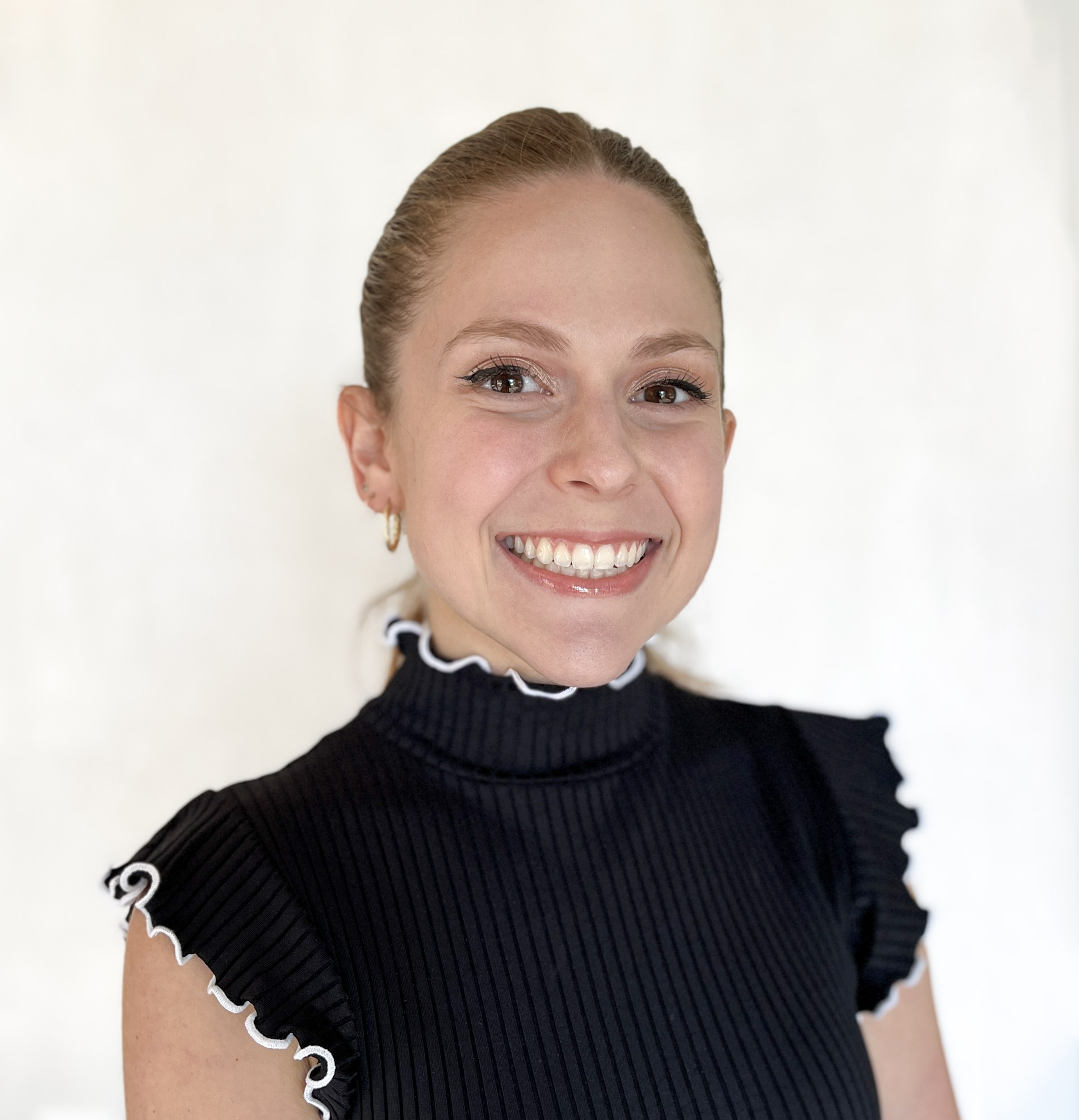
Alexa Ciangiulli (she/her)
Practicum Student
Telehealth & In-person
At Montclair State University, I majored in psychology with a focus in cognitive science and women, gender, and sexuality studies. After graduating in 2022, I am pursuing a Psy.D. in clinical psychology and MEd in human sexuality at Widener University. My interests revolve around learning to incorporate trauma-informed practices along with ACT and CBT techniques with a wide range of individuals.
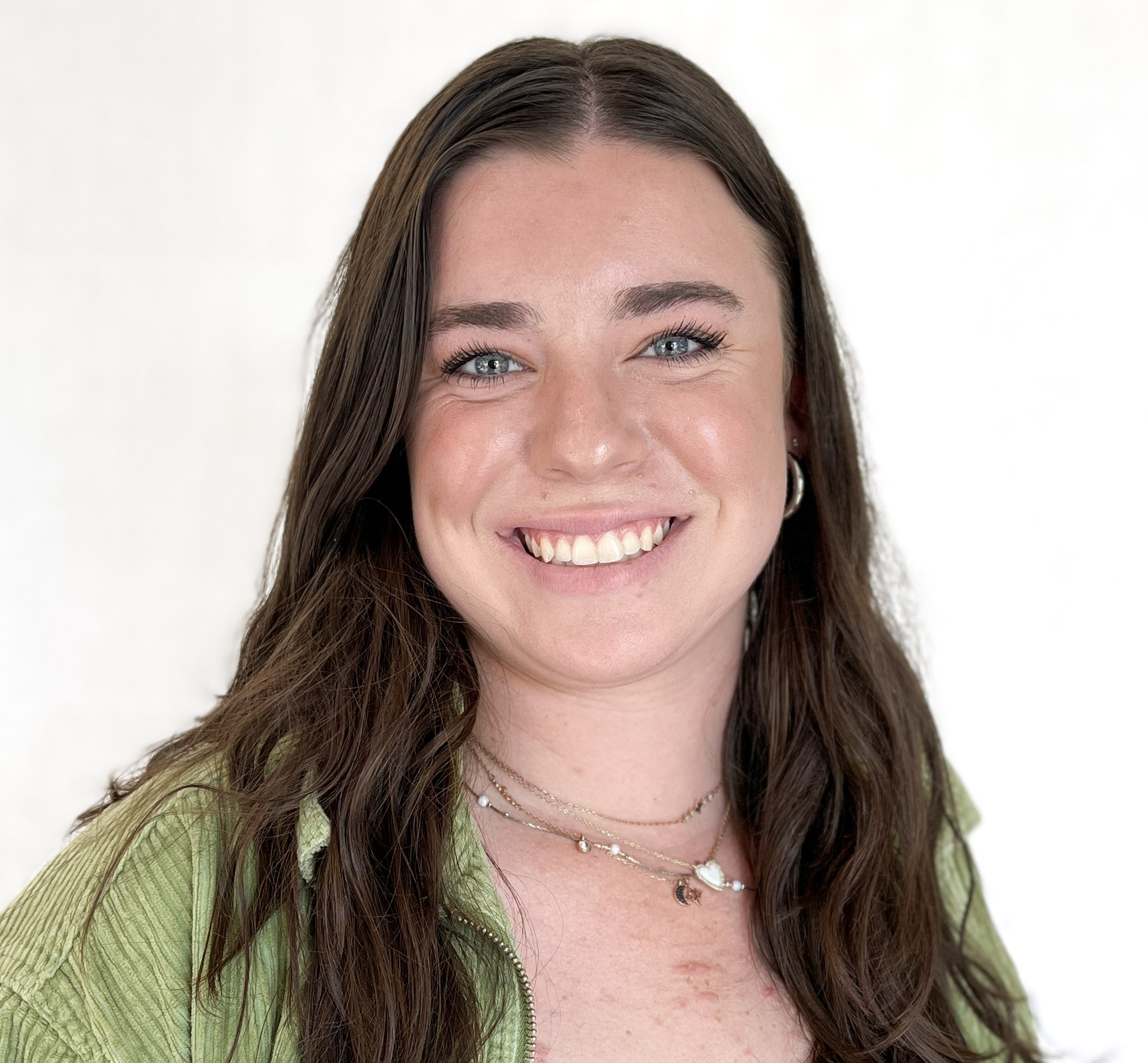
Cara Dillhyon (she/her)
Practicum Student
Telehealth & In-person
I am currently a 2nd year graduate student at Widener University in the Insitute for Graduate Clinical Psychology, and in 2021 graduated from Florida State University with my Bachelor of Science in psychology and a minor in childhood development.
As a student of a generalist training program, I am learning to integrate a variety of therapeutic approaches when working with clients. I am passionate about the mind-body connection and utilizing this connection to best work with children and their families, as well as working with individuals with Traumatic Brain Injury and chronic health conditions.
Our Neurofeedback Technicians
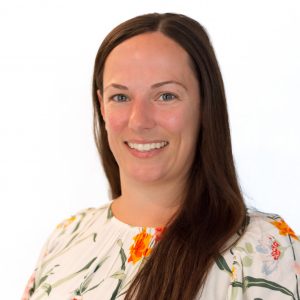
Kristin Dugas, BCN (she/her)
Neurofeedback Technician
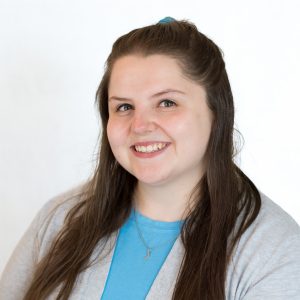
Nicole Nyce, BCN (she/her)
Neurofeedback Technician
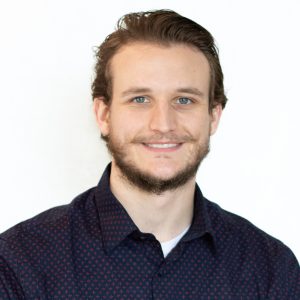
Kyler Grimes, BCN (he/him)
Neurofeedback Technician
Practice Administration

Kathy Fauci (she/her)
Practice Manager
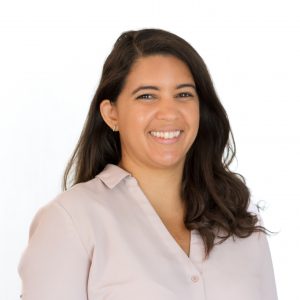
Tassia Trindade, MSM (she/her)
Intake and Billing Specialist
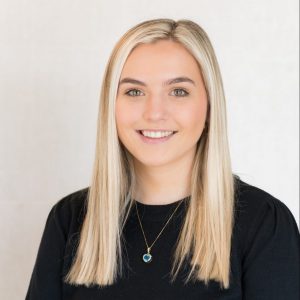
Bridget McKeever (she/her)
Intake Coordinator
Our client-centered care includes all aspects and interactions at The Center, LLC. It begins with coordinating your intake appointment and continues as we endeavor to help make sense of insurance, schedule an additional service for you or a family member, reschedule an appointment or provide an explanation of billing.
Our secure email and voicemail are open to you and we can be found in person in Suite 134 at the King of Prussia Office.
 Contact The Center, LLC
Contact The Center, LLC
Please fill out the form below. An intake coordinator will respond with a phone call to answer questions, discuss our services and providers, and schedule you for an initial biofeedback, psychotherapy or nutrition appointment.
For emergencies call 911 or visit your nearest hospital
